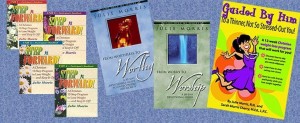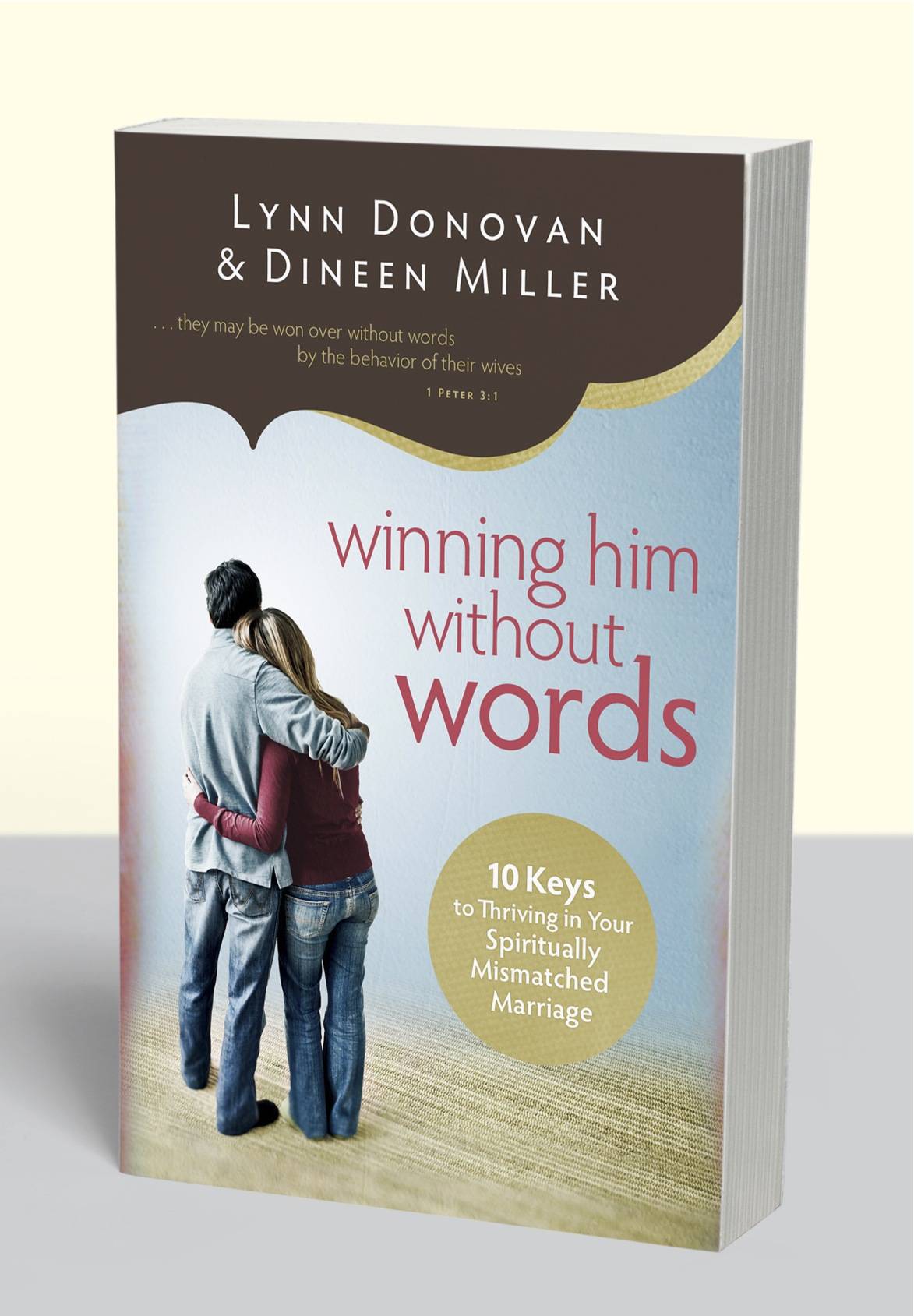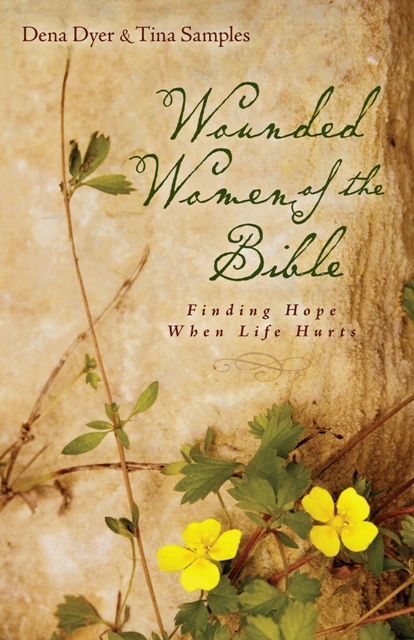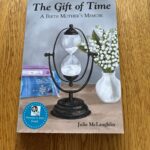 After a lifetime of struggling with unhealthy extra pounds and negative thoughts that also weighed her down, Julie Morris discovered practical ways to rely on God’s power instead of her own shaky willpower. She lost her weight 30 years ago and was amazed to find that her worries and paralyzing feelings of low self-esteem began to disappear as well.
After a lifetime of struggling with unhealthy extra pounds and negative thoughts that also weighed her down, Julie Morris discovered practical ways to rely on God’s power instead of her own shaky willpower. She lost her weight 30 years ago and was amazed to find that her worries and paralyzing feelings of low self-esteem began to disappear as well.
This week, I am interviewing Julie Morris, author of From Worthless to Worthy. She is not only the author of 12 books, but also a lay counselor and founder of Step Forward Christian Weight-Loss Program and Guided By Him—a lighter and easier version of Step Forward. She presents seminars, retreats, and workshops across the country that inspire her audiences to make exciting changes toward becoming the person they have always wanted to be. Julie was also a secretary at the Pentagon and supervisor of a large hospital medical-surgical unit. I’m so pleased to interview her today.
Linda: Julie, tell us what inspired you to write the book entitled From Worthless to Worthy.
Julie: I wrote From Worthless to Worthy because, after a lifetime of battling debilitating feelings of inferiority, I finally discovered how to get free of them. I learned practical things I could do to get God’s promises from my head to my heart, and when the truth of his unconditional love for me sunk in, it changed my life. The things I discovered were just too good to keep to myself!
Linda: When did your feelings of inferiority begin?
Julie: Everywhere I turned when I was growing up someone was taunting me—putting labels on me. People called me things like “Fat,” ”Worrywart,” and “Stupid.” These labels penetrated deep into my soul, leaving me with scars far more disfiguring than ones that are just skin deep. The hurt was so overwhelming that it had a paralyzing effect on me—keeping me stuck in destructive habits and swirling thoughts. I didn’t feel like I made mistakes; I felt like I WAS one. I discovered at a very young age that sticks and stones can break your bones, but names can…hurt far worse.
When I felt bad about myself, I found that there was one place I could go that would make me feel better right away: the refrigerator. It’s no surprise that my problems grew and so did I! The fatter I got, the more upset I became; the more stressed out I got, the more I ate. I felt powerless to change.
Overcoming Inferiority
Linda: That must have been devastating. You mentioned that the key to overcoming your inferiority feelings was to get God’s words from your head to your heart. So even as a Christian you apparently struggled with these feelings of inferiority. What happened to make the difference? So many of us know what God’s Word says, but we have problems believing it is true for us personally. What was the most important truth you learned that took away those feelings of inferiority?
Julie: I finally discovered in Psalm 34:5 the secret to overcoming feelings of inferiority—“Those who look to him are radiant; their faces are never covered with shame.” I realized that I needed to start looking to the Lord for my identity. I was a King’s kid and needed to remind myself of that often. Instead of focusing on my weaknesses, problems and the critical remarks of others, I changed my focus to the Lord and what his Word says about me.
Linda: And how did you do that? How did you actually get God’s words from your head to your heart so they would stay there?
Julie: I discovered how to have a 15-minute quiet time every day focusing on the truth from God’s Word. When I had a quiet time consistently in this way, I found that I didn’t just know the truth in my head; I experienced it in my life. No longer was I stuck in weaknesses, regrets and vicious cycles. I finally was able to lose my harmful extra pounds and the horrible negative thoughts that also weighed me down. I call this time “My 15-Minute Miracle” because it is so helpful. Because I am still having my quiet times daily, I am continuing to experience new miracles in my life.
Linda: Which particular promises of God have given you the most assurances of your worthiness and why?
Julie: Here are a few of the verses that have helped me most:
• Ephesians 1:5 “His unchanging plan has always been to adopt us into his own family by bringing us to himself through Jesus Christ. And this gave him great pleasure.” I am God’s beloved child!
• Deuteronomy 33:12 “Let the beloved of the Lord rest secure in him for he shields him all day long. The one the Lord loves rests between his shoulders.” I can rest, protected in his arms!
• 1 John 1:9 “If we confess our sins, he is faithful and just and will forgive us our sins and purify us from all unrighteousness.” I am fully forgiven!
• 2 Corinthians 12:8 But he said to me, “My grace is sufficient for you, for my power is made perfect in weakness.” He will change my weaknesses to strengths!
• Zephaniah 3:17 “The LORD your God is with you, he is mighty to save. He will take great delight in you, he will quiet you with his love, he will rejoice over you with singing.” God is singing love songs over me!
• Titus 3:5 “He saved us, not because of the good things we did, but because of his mercy.” I don’t have to earn his favor because I already have it!
Where to Begin
Linda: If someone wants to study the Bible as you suggested and are at a very low point in their life, where in the Bible do you suggest they should begin so that they will find the most hope?
Julie: Start with the verse (above) that speaks to you most. Write it down in a notebook or prayer journal. Consider this verse a letter to you from God. Now write him a short note telling him how his words help you today. Choose a different verse each day and write God a short letter about it. I have discovered that prayer journaling in this way helps keep me focused on the Lord and his promises. And memorizing his promises propels them from my head to my heart so they become a part of who I am.
Linda: How did understanding your temperament and spiritual gifts help you to feel more worthy?
Julie: Learning about temperaments and spiritual gifts helped me to realize that God made me the way I was—with a plan and a purpose. Some of the things I hated about myself, such as my absent-mindedness and tendency to be messy, were just part of my Sanguine temperament. I could finally stop beating myself up over my negative qualities and start making plans on how to rely on the Lord’s help to overcome them. At the same time, I started rejoicing over the positive qualities of a Sanguine—a friendly, out-going nature that motivates others. I realized that I would miss out on many blessings if I kept my eyes on my inability and inferiority instead of appreciating the temperament and spiritual gifts God had given me.
Linda: Is there anything else you want to share with my readers who may be hurting right now?
Dealing with the Low Points
Julie: Yes. When I have been at low points in my life, several other biblical truths have lifted me out of the pit:
• God is close to the brokenhearted. If you reach out to him, he’ll give you his peace—even in terrible situations. (Psalm 34:18)
• God is in the miracle-making business. He can do the impossible. Don’t try to fix things yourself; surrender them to him! (Matthew 19:26)
• God changes misery to ministry. No pain is wasted in his economy. He will give you the opportunity to share with others the lessons you have learned. (2 Corinthians 1:4)
• God wants us to forgive—even the unforgivable. Nursing a grudge or harboring bitterness is like giving yourself poison and expecting the other person to die! We forgive, not because the other person deserves it, but so that we can be set free from the torment that comes with unforgiveness. (Ephesians 4:27)
• God wants us to reach out to someone trustworthy for help. When we’re going through trials, a Christian counselor, pastor or prayer partner can offer just the helping-hand we need. (James 5:16)
Linda: I know that you have written 12 books. What have the other 11 books focused on?
Julie: In each of my books I help my readers to overcome weaknesses by relying on God’s strength—just as I have. I have written two Christian weight-loss programs as well as a sequel to From Worthless to Worthy, titled From Worry to Worship.
Linda: Where can readers find out more about your books and your speaking?
Julie: You can find more at: www.guidedbyhim.com, www.stepforwarddiet.com, www.worrytoworship.com, and www.worthlesstoworthy.com. For speaking, readers can find a list of some of my favorite topics at www.findjulie.com.








